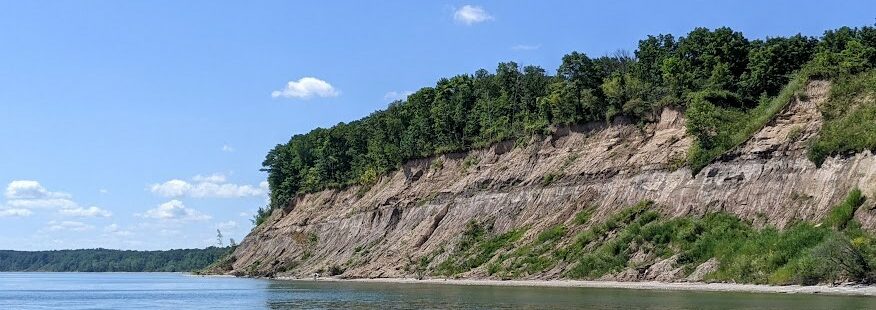Thunderstorms, Tornadoes and Hurricanes, ATM SCI 109-201
May 28 – August 17, 3 credits
Instructor: Jon Kahl
Course description: The phenomenology and dynamics of exciting severe weather phenomena, including tornados and hurricanes, is addressed in this introductory level course. It is a one-term course for interested students including business, engineering, life and social sciences, and liberal arts majors, as well as prospective elementary school teachers. The course provides a brief introduction to the composition, structure, energetics, and circulation of the atmosphere, as well as to the analysis of weather systems. This is followed by an in-depth examination into the physical principles and phenomenology of severe weather events. The course introduces the scientific method and emphasizes the importance of meteorology in the modern world.
This course meets the NS General Education Requirement
Course format: This course is delivered fully online, and will not have a designated virtual meeting time; computer & internet access required.
Enrolling: Students interested in this course can enroll via PAWS. Students not enrolled at UW-Milwaukee must enroll as a guest student first.
Fish Culture Techniques and Practices, FRSHWTR 650-001
June 24 – July 20: Tuesday, Wednesday, Thursday 9:00am-1:00pm, 3 credits
Instructor: Dong Fang Deng
Course description: An introduction to fish culture techniques with a focus on model fish (zebrafish) and aquaculture fish for food or conservation (Lake sturgeon, yellow perch, and walleye). Prerequisites: Bio Sci 152 (or equivalent), Chem 104 (or equivalent), graduate standing, or consent of instructor.
Course format: This is an in-person course. Each class will include one-hour lectures and three-hour laboratory exercises.
Enrolling: Students interested in this course can enroll via PAWS. Students not enrolled at UW-Milwaukee must enroll as a guest student first.
Elements of Water, Frshwtr 101-001
July 1 – August 24: Tuesday, Thursday 9:00am-12:00pm, 3 credits
Instructor: Michael Carvan
Course description: The most important natural resource on Earth is freshwater. This course will address the importance of water in biological, ecological, physical, climate and economic systems, and the consequences of distributing the natural water cycle.
This course meets the NS General Education Requirement and is open to high school students enrolled in the Early College Credit Program.
Course format: This is an in-person course.
Enrolling: Students interested in this course can enroll via PAWS. Students not enrolled at UW-Milwaukee must enroll as a guest student first.
Human Interactions with Lake Michigan Coastal Ecosystems, FRSHWTR 190-001
Instructors: John Janssen, Christopher Houghton, Liz Sutton, Julie Kinzelman
Course description: A summer field course along Wisconsin’s Lake Michigan coast to become familiar with Great Lakes ecosystem complexity by comparing natural areas against human impacted harbors. There are no prerequisites for this course.
Course format: This is a blended course with both online and in-person portions: computer & internet access required.
- May 28-May 31: Online Asynchronous pre-reading and a synchronous informational meeting to review daily schedules, transportation and lodging plans, and expectations of the in-person portion.
- June 3-June 14: In-person Students will meet at UW-Green Bay on June 3. The class will travel together by van from UW-Green Bay to the other locations moving from Green Bay along the Lake Michigan Coast to Kenosha (lodging at UW-Green Bay, UW-Milwaukee, & UW-Parkside). There will be no formal class the weekend of June 8-9. Students can either be picked up in Kenosha on June 14 or driven back to UW-Green Bay to retrieve their vehicles.
- June 17-June 22: Online Asynchronous work on final project.
Water Pollution Field Lab and Methods, FRSHWTR 190-002
Instructors: Michael Carvan, Elisabeth Harrahy, Tisha King-Heiden
Course description: This collaborative course will introduce students to laboratory and field methods used to assess the environmental and health effects of water pollution. Prerequisites: Bio Sci 150 Foundations of Biological Sciences I (or equivalent), Chem 102 General Chemistry (or equivalent), or consent of instructor are prerequisites of this course.
Course format: This is a blended course with both online and in-person portions; computer & internet access required.
- May 28-May 31: Online Asynchronous pre-reading and a synchronous informational meeting to review daily schedules, transportation and lodging plans, and expectations of the in-person portion.
- June 3-June 14: In-person Students will travel on their own to UW-Milwaukee. Classes will be held at the School of Freshwater Sciences.
- June 17-June 22: Online Asynchronous work on final project
Summer in the Yucatán Peninsula, Mexico
Instructors: Val Klump, Tim Grundl, Jerry Kaster, Marissa Jablonski
Course description: The School of Freshwater Sciences at the University of Wisconsin-Milwaukee through the support of the National Science Foundation’s International Research Experience for Students (IRES) program provides an opportunity open to both undergraduate and graduate students to enroll in a field research experience in the Southern Yucatán Peninsula at the Laguna Bacalar International Research Station on the campus of CREN Normal College in Bacalar, Mexico.
Mexico’s second largest natural lake, Laguna Bacalar is one of the most unique freshwater lakes on Earth. It is part of an important ecological corridor ranging from tropical forest to the Caribbean Sea. The Laguna has the world’s largest freshwater, living Stromatolites (oldest known life forms at 3.5 Ga that put oxygen in the atmosphere), extensive freshwater mangroves, cenotes, and a unique hydrology.
Program Options and Requirements
This program offers two options. Participation, preparation, conduct of research and reporting results are the same for both options.
Option 1 is a no-credit option with no tuition required.
Option 2 is for students seeking undergraduate or graduate credit consists of up to 9-credits of courses including a 3-credit independent study and 6-credits of field research study in Mexico. Students are responsible for tuition costs at UWM. See specific course requirements.
Week 1 will be at the UWM School of Freshwater Sciences, weeks 2-8 will be on site in Mexico at the Bacalar International Field Research Station.
International airfare, in-Mexico transportation, lodging and modest research expenses are paid for through the NSF IRES grant. Other expenses including cultural excursions, meals, health and travel insurance, academic costs including tuition and fees if taking for credit are the student’s responsibility.
